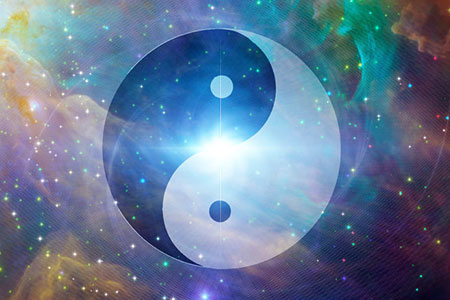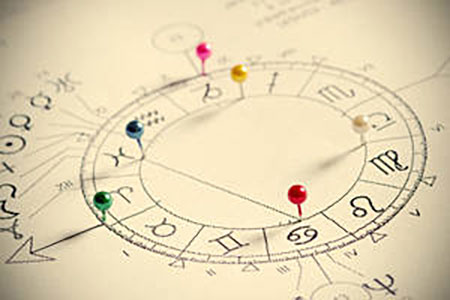karmic law
How To Clear Your Karma
 Karmic cycles are repetitive patterns in consciousness that emerge through a belief that is contrary to the laws of the Universe.
Karmic cycles are repetitive patterns in consciousness that emerge through a belief that is contrary to the laws of the Universe.
Some religions and spiritual teachings refer to humanity as the ‘children of God.’ When I use the term ‘God,’ I do not mean some off-world deity that is separate from us mere mortals. To me God is the All. It is the Creative Force. Being a ‘child’ of this Creative Force means that we have the same nature and creative capacity.
Many wisdom traditions also equate words, thoughts and consciousness with God’s ability to create. In other words, thought has a creative function in the Universe. Thoughts are words, images, and stories that are repeated in the mind and they have creative power.
Another way of saying this is that whatever we choose to think or believe about ourselves and others, and about the world around us, ultimately becomes true for us. This is important when discussing how to clear away old karmic patterns.
Karma are patterns of thought that are repeated in the mind and influence how we create our life experiences. Free will means that we have total freedom in what we choose to think and believe.
This is not to say that a specific thought, or even a behavior, is wrong or bad. In fact, the Universe or God always takes us at our own value and says yes to all our thinking and feeling patterns.
Karma is a secondary spiritual law to the Law of Attraction, that allows us to evolve continually into our higher potentials. From an esoteric or spiritual perspective this relates to the expansion of love, joy, and peace within our mind.
Karma and the Law of Attraction are also separated by a protective buffer, in that we often experience less damage than our minds can produce through thought, and we also receive more good than our minds can produce through thought. In metaphysics this is known as the Law of Grace. Continue reading
The Karmic Fruit Of Our Past Life Seeds
 To be the architect of our own destiny is a spiritual concept that has been spoken of for thousands of years. The Vedas call it Karma. The Bible refers to it as ‘reaping what you sow.’
To be the architect of our own destiny is a spiritual concept that has been spoken of for thousands of years. The Vedas call it Karma. The Bible refers to it as ‘reaping what you sow.’
Karma is a Sanskrit word that means action, as well as reaction. It has made its way into our everyday language to represent the good or bad we create in life that will eventually come back to us.
However, the true meaning of karma goes much deeper than that. In this life it does refer to ‘sowing and reaping’ in the short-term, but it also extends into the long-term, over thousands of years and many lifetimes.
The Padma Purana, an ancient Hindu encyclopedic text of spiritual truths, compares karma to seeds that are sown and harvested in due course of time. It explains that every activity we perform bears four kinds of effects. The first is merely a seed, the second is not yet fructified, the third is in the process of being fructified, and the fourth has blossomed and is already mature.
The karma we are experiencing today, are the sweet and sour fruits of the past seeds we have planted, – not only in this lifetime, but also from thousands of years and lifetimes before this life.
Therefore, we may not be able to recognize why certain things are happening that seem out of sync with the efforts and energies we are extending in the now. Similarly, it may sometimes be disheartening and difficult to understand why the desired results of our best endeavors do not appear to be coming to fruition.
To thoroughly resolve these misgivings, a broader scope of our soul’s journey before and beyond this one body and lifespan must be considered. Clarity can come with spiritual vision and higher consciousness.
Karma And The Law Of Attraction
 It is quite common to hear of the ‘Law of Attraction’ these days. However, although the concept has become popularized in mainstream culture, it is actually an ancient spiritual concept. In metaphysics, it is one of the primary Universal Laws.
It is quite common to hear of the ‘Law of Attraction’ these days. However, although the concept has become popularized in mainstream culture, it is actually an ancient spiritual concept. In metaphysics, it is one of the primary Universal Laws.
However, what is less commonly known is that the concept of Karma is secondary or sub-law to the Law of Attraction. The principle of Karma or Karmic Law is found in various religions and wisdom traditions, particularly Hinduism, Buddhism, Taoism, Jainism, and Sikhism. It prevails over multiple lifetimes and is associated with our soul evolution and rebirth.
To understand Karma, it is usually helpful to consider what it is not. Karma is not a punitive concept of punishment for the bad, and rewards for the good. Karma does not ‘come for us’ when we do bad or evil things. In fact, we can potentially resolve karmic patterns within a single lifetime, even before they manifest into actual events and experiences.
Karma is created through core belief patterns we have about ourselves, about life, and the world around us. These beliefs, mindsets and paradigms are often accumulated through many experiences over several lifetimes. And ‘negative karma’ is created when we consistently believe, for example, in things like fear, lack or limitation.
A good example is the Great Depression of the 1930s. During that time, many people focused on lack or limitation. There was a fear of poverty and hardship. These beliefs created many cultural challenges. For example, many parents abandoned their children and families.
This created a karmic paradigm for them, and if that paradigm was not cleared out in their lifetime, it will be repeated in future lifetimes, until it is cleared out. They will reincarnate in the next lifetime with this core belief still attached to their subconscious mind. In their next life they will likely experience abandonment themselves. Their abandonment is not the karma, their abandonment is the result of the actions that were taken as a result of their fear or false beliefs.
The Spirits Of The Mountains Are My Soulmates
 There are times in our lives when we know that our inspirations are coming from something beyond the personality. These visions come from a land beyond the physical, even beyond words. They are concepts we have no words for, we have only our inner knowing. The personality moves over and we find ourselves relying upon something beyond the five senses, or sheer logic.
There are times in our lives when we know that our inspirations are coming from something beyond the personality. These visions come from a land beyond the physical, even beyond words. They are concepts we have no words for, we have only our inner knowing. The personality moves over and we find ourselves relying upon something beyond the five senses, or sheer logic.
Perhaps that sixth sense is the emerging force, which is the next step in the evolution of the human race. A developing being knows it is no longer appropriate to depend only upon the physical world. This being will develop the skills it needs to see and feel and work within the unseen territory of the soul.
Once we acknowledge the soul’s existence and approach it with respect and sacredness, the personality becomes aligned with the soul. With this alignment comes respect for all life, and many difficulties usually experienced with the unconscious personality can be avoided.
When our soul becomes mindful and directly involved with the physical world, we greet each day with the deepest part of ourselves, and all activities become gratifying and purposeful. It is the gratitude that we give each day that gets us off the karmic wheel of debt, because we now see the sacredness of all life. W
I have much to be grateful for. The desert’s barrenness, along with the mountains’ majesty, stripped me of my ego long enough to allow the healing forces of the sagebrush to greet my soul. Sage has healed my physical body during illness, my emotional and mental bodies during depressions and confusion, and it has healed my soul of desolation.
Truths In Your Astrological Chart
 An astrological chart can be a wonderful tool – a marvelous means of gaining insight into who we are as a person. Reading your astrological chart and having it interpreted correctly is the only way to be able to use this tool effectively.
An astrological chart can be a wonderful tool – a marvelous means of gaining insight into who we are as a person. Reading your astrological chart and having it interpreted correctly is the only way to be able to use this tool effectively.
Many people think that their Sun Sign is the only important aspect to know, and little do they realize that it is a mere piece of the astrological puzzle.
We are complex beings, made up of a variety of astrological aspects. It is important to combine all these elements and influences, in order to truly function at the level of which we are capable. The world around us needs a combination of things to ensure the continuation of life and we are exactly the same.
If you over water a plant you can kill it. Too much, or too little, fresh air and sunlight may or may not damage a plant. We are just another expression of nature, except that we have arms and legs.
For example, a young lady has her Sun in Taurus, her Moon and her Venus in Aries and her Ascendant (or rising sign) in Libra. Let’s go one further, and say that all these planets fall into her Seventh House. Can you determine what this young lady’s Achilles heel might be? In other words, what might her downfall or her soft spot be?
The answer is love. The reason for this is that her Moon (who she is on the inside, her deepest darkest self) is in Aries – a fiery passionate sign, prone to impulse. Her Venus is also in Aries, and her rising sign Libra (the ultimate lover). They are all in or near enough to the seventh house, which rules love and partners, to just about control every aspect of her being, until she has been properly ‘broken in’, just like you would a wild horse.
She has great, harsh lessons to learn in her life about love. She will, no doubt, while she is younger and more resilient (at least in her mind) fall in love many times a day, and for each moment give it her absolute all.
It Just Happened
 Too often people justify their poor judgment and bad choices with feeble excuses like, “It just happened.” But we all know that this is seldom the truth. The reality is that every step in our life is a choice. Whether we step forward, sideways, backwards, or stand still, it is a choice. And we should take personal responsibility for our life choices.
Too often people justify their poor judgment and bad choices with feeble excuses like, “It just happened.” But we all know that this is seldom the truth. The reality is that every step in our life is a choice. Whether we step forward, sideways, backwards, or stand still, it is a choice. And we should take personal responsibility for our life choices.
In everyday life we do not think much about where our steps may be leading us. We are typically just walking automatically in some direction. Many people simply live by trial and error.
However, when things go bad for us, it is usually because we have subconsciously, or even consciously, made the choice to move in a certain direction – a direction that we intuitively knew was not serving our highest good. And sadly, many times these bad choices also severely affect others.
For example, a friend of mine, who has only been married for one year, currently remains geographically separated from her husband, until she gets her immigration paperwork to be able to join him legally in his country. They had a beautiful wedding, and made the usual promises: to love and cherish, be faithful, in sickness and health, until death do them part.
Despite their long-distance marriage, they were doing everything right during the waiting period – or so it seemed. They called each other daily on the phone, and also talked on video chat. They constantly texted loving messages. He was originally also able to come and visit her here in Canada, but she could not cross the border to see him. However, when the Covid-19 pandemic hit, he was also denied entry. They had no further choice but to wait it out.
What To Believe When You Come Undone
 So much of the typical human belief system is actually in direct opposition to the concepts of spiritual law. Let’s take the idiom “Life is too short,” for example. This saying is used to essentially suggest or convince oneself or another that we don’t live long…so just live for the now and just do what’s desirable regardless of the consequences. Well, wrong!
So much of the typical human belief system is actually in direct opposition to the concepts of spiritual law. Let’s take the idiom “Life is too short,” for example. This saying is used to essentially suggest or convince oneself or another that we don’t live long…so just live for the now and just do what’s desirable regardless of the consequences. Well, wrong!
The soul’s journey is quite a long one. We reincarnate through many centuries of lifetimes, until our souls have completely evolved, returning to each new life with lessons to learn based on beliefs, karma and decisions made in our prior lives.
For example, a slave master born might return in his next life as a slave, to face his karma and endure what it’s like to be treated as such, and ultimately understand why it’s wrong. So, in reality, life is ‘too long.’ Every action has a reaction – an energetic effect. Thus, we need to be cognizant and conscientious of all that we say and do in this life, and not just engage or divulge in whatever we please, because of a physically limited life span.
That same theory of misunderstandings and contradictions between spiritual concepts and human beliefs, more detrimentally applies to life struggles and emotional well-being. How many times have you prematurely mourned a relationship…then wound up reuniting with your partner? Or maybe you lost your favorite job and felt hopelessly valueless and depleted, foreseeing eternal darkness, only to find your dream job shortly after? Moments, days, weeks, months, years, where you either take on a defeatist attitude, and suffer, or become a control freak and try to take matters into your own hands. Thinking you are, but not trusting that you are not, the wizard behind the curtain?